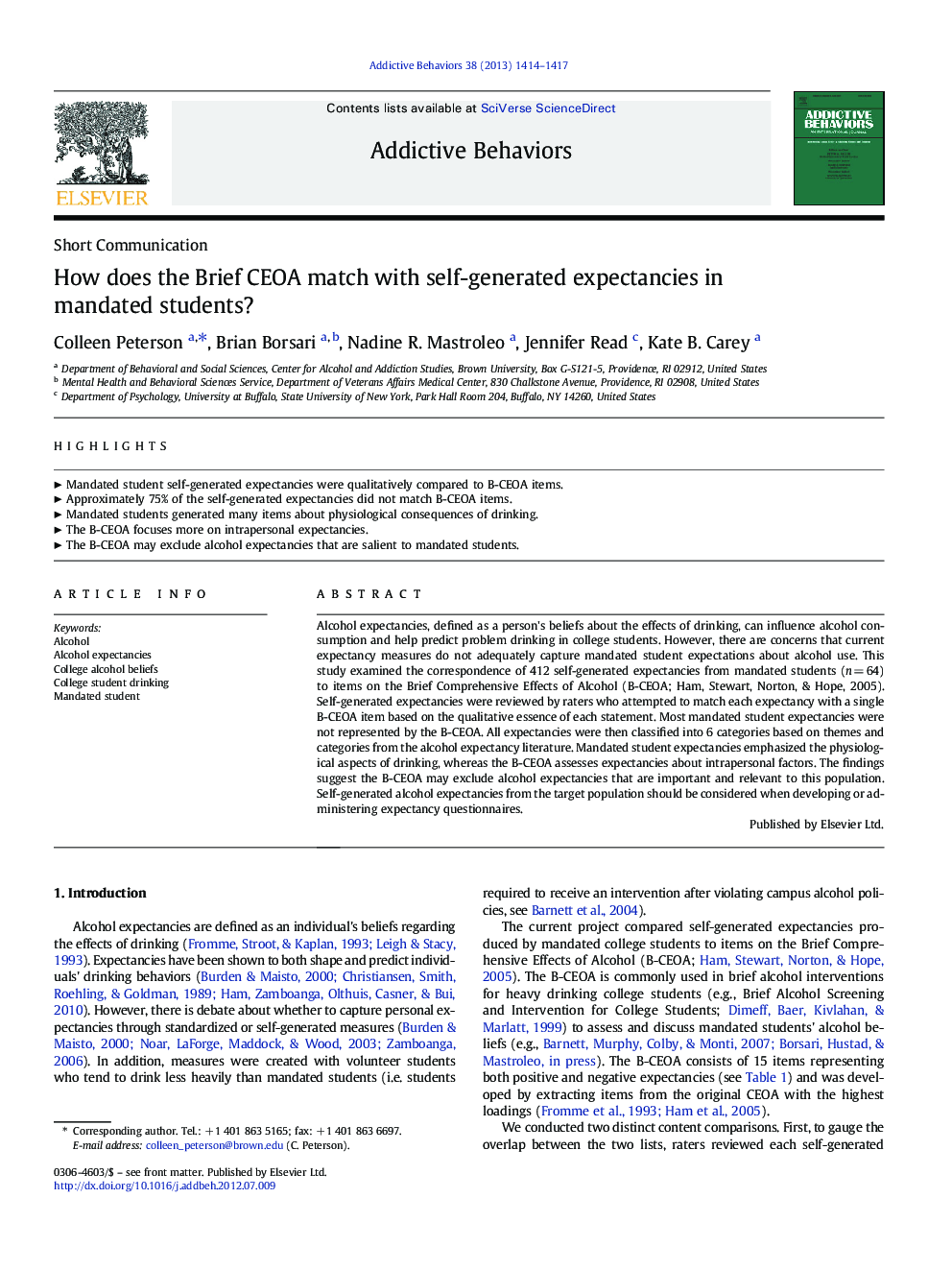| Article ID | Journal | Published Year | Pages | File Type |
|---|---|---|---|---|
| 899065 | Addictive Behaviors | 2013 | 4 Pages |
Alcohol expectancies, defined as a person's beliefs about the effects of drinking, can influence alcohol consumption and help predict problem drinking in college students. However, there are concerns that current expectancy measures do not adequately capture mandated student expectations about alcohol use. This study examined the correspondence of 412 self-generated expectancies from mandated students (n = 64) to items on the Brief Comprehensive Effects of Alcohol (B-CEOA; Ham, Stewart, Norton, & Hope, 2005). Self-generated expectancies were reviewed by raters who attempted to match each expectancy with a single B-CEOA item based on the qualitative essence of each statement. Most mandated student expectancies were not represented by the B-CEOA. All expectancies were then classified into 6 categories based on themes and categories from the alcohol expectancy literature. Mandated student expectancies emphasized the physiological aspects of drinking, whereas the B-CEOA assesses expectancies about intrapersonal factors. The findings suggest the B-CEOA may exclude alcohol expectancies that are important and relevant to this population. Self-generated alcohol expectancies from the target population should be considered when developing or administering expectancy questionnaires.
► Mandated student self-generated expectancies were qualitatively compared to B-CEOA items. ► Approximately 75% of the self-generated expectancies did not match B-CEOA items. ► Mandated students generated many items about physiological consequences of drinking. ► The B-CEOA focuses more on intrapersonal expectancies. ► The B-CEOA may exclude alcohol expectancies that are salient to mandated students.
